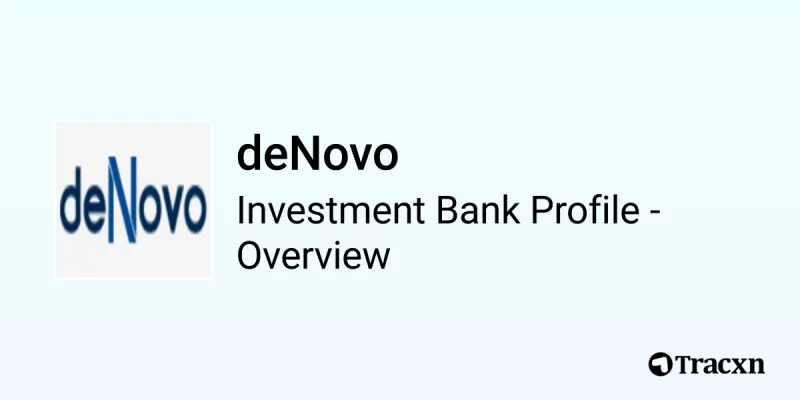De Novo Bank: Understanding Its Meaning and Role

A de novo bank is a newly established financial institution built from the ground up, starting with a fresh charter and no prior operational history. Unlike banks formed through mergers or acquisitions, de novo banks are independently initiated, often to address specific market needs or underserved communities. These institutions play a vital role in fostering competition, innovation, and economic growth within the financial sector. However, starting a de novo bank involves rigorous regulatory approval, substantial capital requirements, and a clear business strategy to ensure compliance and success.
By exploring the concept of de novo banks, we can better understand their importance in shaping a dynamic and inclusive banking ecosystem.
What Is a De Novo Bank?
A de novo bank refers to a newly chartered or established financial institution that operates independently, starting from scratch rather than being part of a merger, acquisition, or existing banking network. The term de novo is Latin for “from the beginning,” emphasizing that these banks are built anew.
Characteristics of a De Novo Bank
- Fresh Charter: De novo banks are granted new banking charters by regulatory authorities such as the Federal Deposit Insurance Corporation (FDIC) in the U.S.
- Focus on Local Markets: These banks often prioritize serving specific communities or niche markets, catering to localized financial needs.
- Strict Oversight: During their initial years, de novo banks are subject to heightened regulatory scrutiny to ensure they comply with financial and operational standards.
Why Start a De Novo Bank?
1. Addressing Unmet Needs
De novo banks often emerge to fill gaps in the market, such as providing financial services in underserved areas or focusing on specialized banking niches like small business loans.
2. Fostering Competition
New banks introduce competition, encouraging innovation and improved services within the financial sector.
3. Community Impact
They often have a community-oriented approach, reinvesting in local economies and fostering financial growth.
The De Novo Bank Formation Process
1. Application and Chartering
Prospective founders must apply for a banking charter from regulatory bodies, such as:
- The FDIC (U.S.)
- Local or regional banking authorities
2. Capital Requirements
Applicants must meet stringent capital requirements to demonstrate financial stability.
3. Business Plan Submission
A detailed business plan outlining the bank’s target market, operational strategy, and compliance measures is essential.
4. Regulatory Approval
Following rigorous reviews, successful applicants receive approval and can begin operations under close oversight for the first three to five years.
Benefits and Challenges of De Novo Banks
Benefits
- Customized Services: Tailored to meet the unique needs of their target markets.
- Economic Growth: Support local businesses and economic activities.
- Increased Innovation: Offer new technologies and financial solutions.
Challenges
- High Regulatory Burden: Must meet strict compliance standards, especially during early years.
- Competitive Landscape: Competing with established banks can be challenging.
- Operational Risks: Limited operational history increases risks in management and customer acquisition.
Examples of De Novo Banks
- Grasshopper Bank (U.S.): Focused on tech startups and small businesses.
- Studio Bank (U.S.): Tailored for creative professionals and entrepreneurs.
These institutions demonstrate how de novo banks can address specific market needs while contributing to innovation in the financial industry.
Conclusion
A de novo bank represents a fresh approach to banking, starting from scratch to serve specific communities or innovate within the financial sector. Despite regulatory and competitive challenges, these banks play a vital role in fostering local economic growth, introducing competition, and addressing unmet financial needs.
If you’re considering starting or banking with a de novo institution, understanding their goals and regulatory framework can help you make informed decisions.
FAQs
1.What does “de novo bank” mean?
A de novo bank is a newly chartered financial institution established from the ground up, not formed through mergers or acquisitions.
2.How has a de novo bank started?
The process involves applying for a charter, meeting capital requirements, submitting a business plan, and gaining regulatory approval.
3.Why are de novo banks important?
They address specific market needs, foster competition, and contribute to local economic growth.
4.What are the risks of starting a de novo bank?
Challenges include high regulatory scrutiny, competitive pressures, and operational risks due to limited history.
5.Can de novo banks specialize in niche markets?
Yes, many de novo banks focus on niche markets, such as small businesses, creative professionals, or underserved communities.
Also read: Human Gathering Cult: 10 Powerful Lessons on Connection and Belonging











